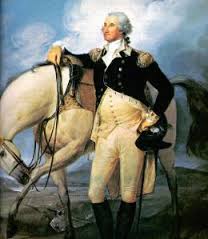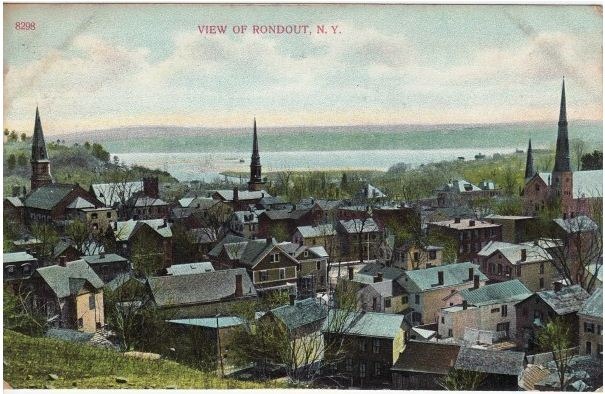
Harry Rigby, Jr.’s, “What’s the Answer” April 18, 1960
It had been a momentous Spring in that year of 1782, even more pregnant with promise than the blessed Spring usually is!
Nature, as usual, had awakened from her long Winter dormancy and had breathed new life into all the green things that promised warmth and a full belly in the few short months to come. New entities were being launched for the first time in this world in the form of the seedlings and saplings whose lives were truly new and not just renewed.
Nature, however, took second billing to men and freedom’s work in America…and particularly in the Hudson Valley…on a notable 19th of April of 1782. The eight thousand ragged, hungry and disillusioned men encamped along the low line of hills back of Newburgh were ordered to pass in review on the parade ground before the Temple of Virtue that morning. It was the eighth anniversary of the Battle of Lexington and Concord, the battle that had proved to be the powder-train leading to rebellion, a rebellion that a few of these same miserable soldiers had embarked upon with zest, enthusiasm and chivalrous high ideals. Eight long years of hunger, defeat after defeat, bone-chilling cold without clothing or shoes enough to keep the cold out, and now sullen muttering about the ingratitude of a people for their privations and a threat to mutiny and seize the government to enforce pay arrearages and a future proper regard for the military as the saviours of their country, had taken much of the bloom off the high ideals. Consequently, the demeanor of the men was cynical and slovenly. The old solider quenched the enthusiasm of the recruit with a curl of his lip and, with a splat of tobacco juice planted neatly two paces before ranks, the remark that in all probability the Commander-in-Chief was merely using the anniversary to make another appeal to their flagging spirits.
“B’God, ‘taint goin’ to work forever, not even for ol’ George Washington, ‘taint”, said the old veteran. Then, as General Washington appeared with his staff, the oldtimer nudged the recruit by his side and hissed out of the side of his mouth, “Straighten up,
sonny, and leastways try and look like a soldier! If ‘ol George is goin’ to take more of their guff, leastways you an’ I are goin’ to stick it out with him!”
General Washington gravely unrolled a parchment roll, reached for the spectacles he had been forced to assume for reading within the last month, and started to read to a patently disinterested army.
Before he was half-way through, an electric thrill passed through the massed ranks of men before him. Within a moment, figuratively, the rags and marks of privation had dropped from them, and the esprit de corps of a crack military unit had been restored to the steadfast ranks. Within another moment, huzza upon huzza resounded from the encircling hills and the order of dismissal was shouted, and order already disregarded as hardened men, tears of joy streaming from their eyes, pounded each other upon the back.
It was over! The army that had never really won a battle had won a war! A few days before, the French ship, “Triomphe” docking at Philadelphia had brought the news that on the 20th of January, the Treaty of Paris had been signed, recognizing the independence of America by the British Crown and the sovereignty of the new nation over all lands from the Canadian border to the Floridas and west to the fortst in the Ohio country.
Now, at long last, the swards could be beat into plowshares and the Spring had new meaning to the countryman poorly masquerading under each ragged uniform.
